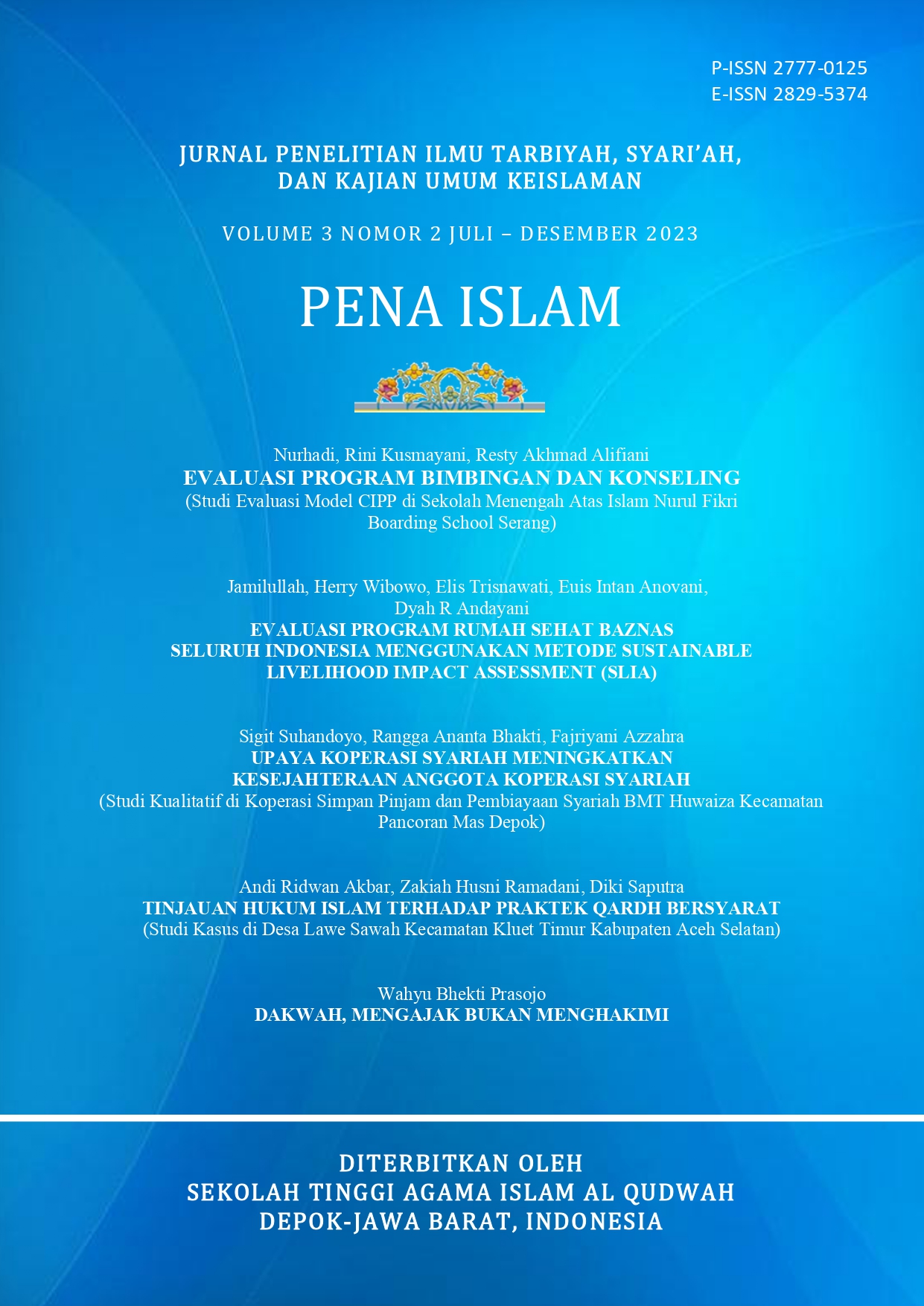TINJAUAN HUKUM ISLAM TERHADAP PRAKTEK QARDH BERSYARAT (Studi Kasus di Desa Lawe Sawah Kecamatan Kluet Timur Kabupaten Aceh Selatan)
Abstrak
The process of debt and receivables or borrowing and borrowing is carried
out to meet needs that are deemed capable of being met in a short time. This study
aims to determine the practice of conditional qardh, a review of Islamic law on
conditional qardh practices, and the factors that encourage people to carry out
conditional qardh practices in Lawe Sawah Village, East Kluet District, South Aceh
District.
The method used in this research is a qualitative approach with a descriptive
research type. The source of the data used in this research is primary data from
observations and direct interviews with people who have carried out conditional
qardh activities. Data collection techniques are carried out through observation,
interviews, and documentation. Data analysis techniques through data reduction,
data presentation, conclusions and verification.
The results of the study show that the practice of conditional riba qardh
that is often carried out is related to borrowing money. A review of Islamic law on
the practice of conditional qardh in the village of Lawe Sawah, Kluet Timur
District, South Aceh Regency so far contains elements of usury, because the party
giving the loan takes advantage of the profits from the harvest of the borrower's
paddy fields, whereas in the contract there is no agreement regarding the yield from
cultivated land. the borrower's fields. This proves that the conditions in the practice
of conditional qardh have not fulfilled Islamic sharia law. Factors that encourage
people to practice qardh are conditional because they require money in a relatively
short time and large amounts of money. In this case one of the motivations is to
make loans to relatives even though they have to provide guarantees.







